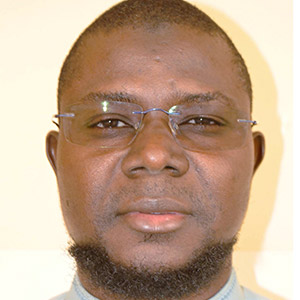
Ingénieur de Conception en Génie Civil de l’EPT en 1997 et titulaire en 2018 d’un MBA International Paris, Mohamed Laye a débuté sa carrière à la CSE où il a été Directeur des Travaux de projets routiers dans 6 pays de l’Afrique de l’Ouest. Depuis 2016, il est à l’AGEROUTE où il occupe actuellement le poste de Chef de la Division des Grands Travaux Routiers.
Il a soutenu en septembre 2021 son Executive Doctorate in Business Administration (EDBA), sur le thème « Optimisation de la performance dans les grands projets d’infrastructures publiques : le cas AGEROUTE Sénégal » sous la direction du Professeur Boubacar Baidari, agrégé des Universités en Sciences de Gestion, Faculté des Sciences Économiques et de Gestion de l’Université Abdou Moumouni (Niamey, Niger).
Direction de thèse
Pr. Baidari Boubacar
Intitulé
Optimisation de la performance dans les grands projets d’infrastructures publiques : le cas AGEROUTE Sénégal
Résumé
Les infrastructures routières offrent un support direct aux activités productives, à la circulation des biens et des personnes ainsi qu’au développement du capital humain, d’où l’importance de leur rôle dans le développement socio-économique des nations. Cette importance fait que les dépassements de délais, de coûts et les défauts de qualité sont des résultats indésirables dans les projets routiers.
Toutefois, au Sénégal, comme partout dans le monde, le respect de ces critères de performance continue d’être un défi à relever dans la mise en œuvre des projets routiers du fait qu’ils sont complexes et entourés d’incertitudes. C’est ainsi que dans le contexte des projets routiers réalisés par l’AGEROUTE au Sénégal, nous nous sommes posés comme question de recherche « comment optimiser la performance des projets routiers dans le cadre d’une vision élargie des parties prenantes ?».
Le principal objectif de notre recherche est de contribuer à l’optimisation de la performance des projets routiers à travers les rôles des parties prenantes (maître d’ouvrage, bureau d’études, entreprise, maître d’œuvre, bailleur de fonds, usagers et riverains).
Afin de réaliser cet objectif, notre recherche s’est appuyée sur une méthodologie qualitative d’approche inclusive et participative à travers 34 entretiens semi-directifs avec les représentants des parties prenantes. Les données textuelles ainsi recueillies ont fait l’objet d’Analyse de Données Textuelles (ADT) avec le logiciel Sphinx.
L’ADT a permis l’émergence des thèmes managériaux relatifs aux rôles de chacune des parties prenantes. Les implications managériales issues desdits thèmes ont été classées en fonction de chaque phase du projet routier (identification, préparation, réalisation et évaluation), suivant les critères (qualité, délai, coût et satisfaction du milieu socio-environnemental) et les axes (efficacité, efficience, pertinence) de la performance.
